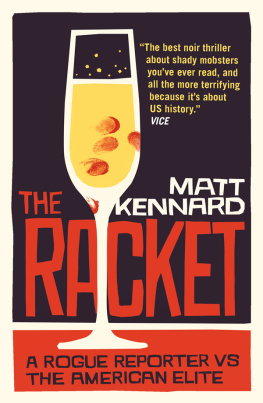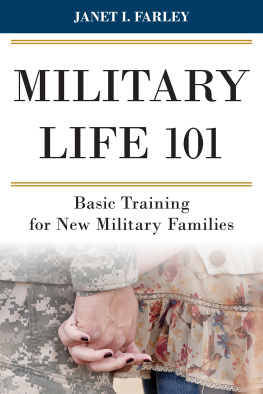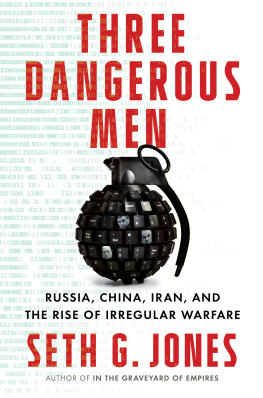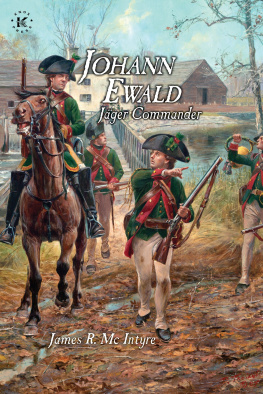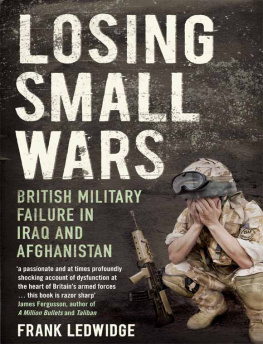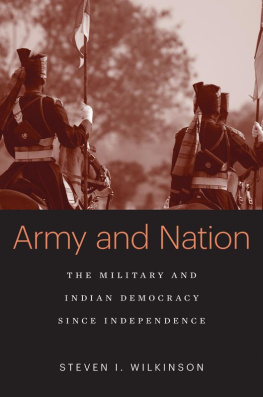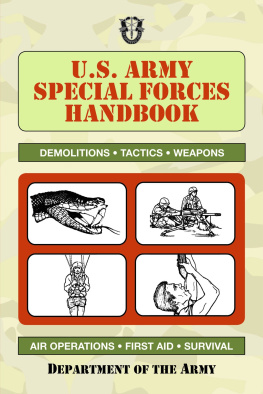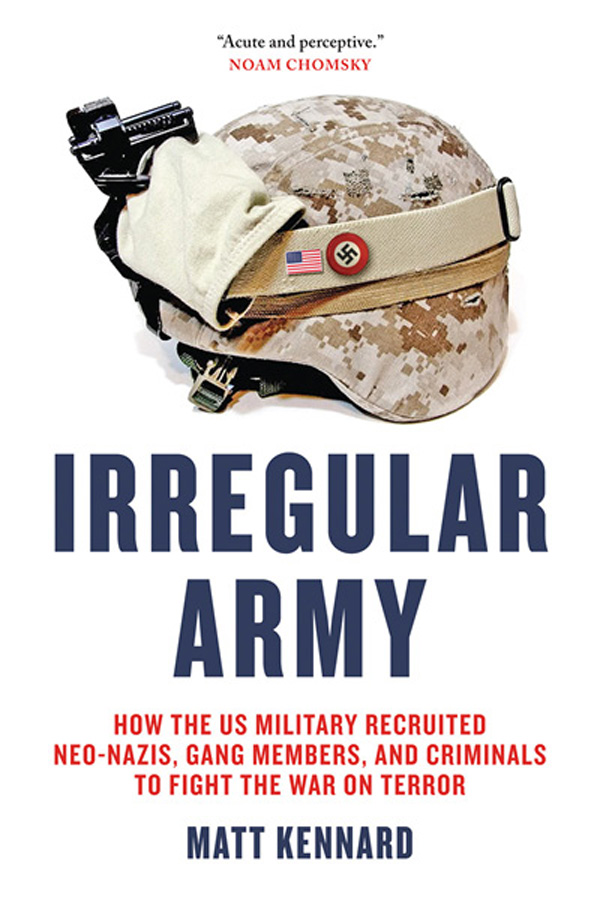
IRREGULAR
ARMY

How the US Military Recruited Neo-Nazis, Gang
Members and Criminals to Fight the War on Terror
Matt Kennard

First published by Verso 2012
Matt Kennard 2012
All rights reserved
The moral rights of the author have been asserted
1 3 5 7 9 10 8 6 4 2
Verso
UK: 6 Meard Street, London W1F 0EG
US: 20 Jay Street, Suite 1010, Brooklyn, NY 11201
www.versobooks.com
Verso is the imprint of New Left Books
Ebook ISBN: 978-1-84467-905-8
British Library Cataloguing in Publication Data
A catalogue record for this book is available from the British Library
Library of Congress Cataloging-in-Publication Data
Kennard, Matt.
Irregular army : how the US military recruited Neo-Nazis, gangs, and criminals to fight the war on terror / Matt Kennard.
p. cm.
ISBN 978-1-84467-880-8 (hbk. : alk. paper) ISBN 978-1-84467-905-8 (ebook)
1. United StatesArmed ForcesEnlisting, recruiting, etc.Standards. 2. United StatesArmed ForcesEnlisting, recruiting, etc.Corrupt practices. 3. SoldiersHealth and hygieneUnited StatesStandards. 4. Physical fitnessUnited
StatesStandards. 5. SoldiersAlcohol useUnited States. 6. SoldiersDrug
useUnited States. 7. Gang membersUnited States. I. Title.
UB333K46 2012
956.704434dc23
2012018558
For all the people whose lives have been ended
or brutalized by these wars
An Army raised without proper regard to the choice of its recruits was never yet made good by length of time; and we are now convinced by fatal experience that this is the source of all our misfortunes.
Flavius Vegetius Renatus, in his military manual
De Re Militari , fifth century, as the decline
of the Roman Empire began in earnest
He served up our great military a huge bowl of chicken feces, and ever since then, our military and our country have been trying to turn this bowl into chicken salad.
Retired General John Batiste, former
commander of the First Infantry division in
Iraq, on Secretary of Defense Donald Rumsfeld, 2006
Contents
Acknowledgments
T his is my first book and it spent a long time germinating before it was finally written. Because of that there are lots of people all over the world who helped me make it real as I worked to focus the issues involved. There are two people particularly without whom this book would have been impossible. Jason Yarn helped me put the idea together from its tentative beginnings with great patience and kindness, while Max Ajl gave his time and skills selflessly at the start of the project. Lionel Barber, David Crouch, and Jo Rollo at the Financial Times were generous and understanding when I needed time to write.
Most thanks and love to my parents, Judy and Peter, for teaching me always to stand up for what you believe in and in turn believing in both this project and me. In their own different ways, they have dedicated their whole lives to trying to make the world a better placethey are my inspiration. Ana for her love, being the best editor and kindest person too, and more than anyone else making this book what it is. Thanks to my brother Daniel for his unwavering belief that I could do anything I set out to do. My grandma Mary has been steadfast in her support and love all my lifeI couldnt have done this without her. Thanks, Nan. Back when this was a seed of an idea Gizem helped me nurture it and was a voice I turned to throughout for sound advice.
Many thanks also to Andrew Hsiao at Verso for his insights into the topic and support throughout the process. Tariq Ali likewise showed faith in the project early on, while Tim Clark improved the final product immeasurably with his stellar editing. The guidance and wisdom of Beech was a constant support the whole way, alongside Rab whose intellectual truculence has taught me a lot over the years. The project started at Columbia University Journalism School where I was taught by Sheila Coronel, who afforded me the financial and intellectual support at the beginning when I was still staring at a blank page. The Nation Institute deserve huge thanks for giving me the financial and moral support needed to continue the initial storydemocracy and journalism around the world would be hugely improved if every country could have an institution like the Institute. Salon published the first short story which gave birth to this book, so thanks to them and in particular Kevin Berger. There are also those who have kept me sane and laughing while writing, so thanks to: Tom, Nick T., Dave, Jake, Pilar, Steve, Frankie, Patrick, Declan, Billy, Whybrow, Al D., Shane, Ivor, Adam, Lex, Summer, Eugene, Jack, Laurence, Harry, Charlie, Chris, Leah, Ralph, Camilla, Hugh, Lucy, Suey, William, and Shannon.
War is the most traumatic event a human being can experience. That goes for those attacked and for those individuals sent to do the attacking. I would like to thank all the veterans who have come home and dedicated their post-combat lives to stopping these wars and fighting for the health and educational benefits that are rightfully theirs. This book is not an indictment of all US service members; it is an indictment of the people who sent them to war on the basis of a lie and knowingly allowed the whole institution to unravel.
It goes without saying none of the people above are responsible for what I have written.
Introduction: Breaking Down
I just cant imagine someone looking at the United States armed forces today and suggesting that they are close to breaking.
Secretary of Defense Donald Rumsfeld, 2006
O n September 10, 2001, Secretary of Defense Donald Rumsfeld stood in front of the assembled great and good of the Pentagon and delivered an expansive lecture entitled Bureaucracy to Battlefield . one aspect of the program has received little coveragenamely Rumsfelds plan for soldiers on the payroll of the DOD. Equally radical, it was a scheme that would prove catastrophic for the troops and the occupied populations living under them. Veiled in the language of business-style efficiency savings, Rumsfelds plan was intended to eviscerate the US military, which was to become merely an appendage to the massive private forces the US would employ in the future.
In this period of limited funds, he continued, we need every nickel, every good idea, every innovation, every effort to help modernize and transform the US military.
This could only be done by changing the basics of how the Pentagon worked, in a process that would later be dubbed Transformation: Many of the skills we most require are also in high demand in the private sector, as all of you know. To compete, we need to bring the Department of Defense the human resources practices that have already transformed the private sector. Even the DOD itself was to be run like a corporation: We must employ the tools of modern business. More flexible compensation packages, modern recruiting techniques and better training. What Rumsfeld desired was a scaled-down, streamlined US militarya reversal of what had become known as the Powell Doctrine, named for the Desert Storm general Colin Powell, who believed in high troop numbers, overwhelming force, and a defined exit strategy. It was a risky approach for Rumsfeld to take. Even before 9/11, Powell, by now Secretary of State, had observed that our armed forces are stretched rather thin, and there is a limit to how many of these deployments we can sustain.
Next page

